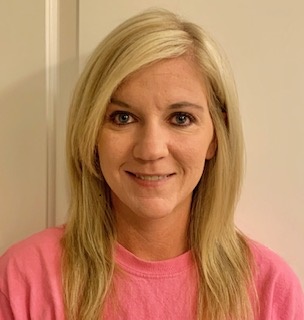RN to BSN Online Program
If you are a registered nurse with an associate degree or diploma certificate in nursing, North Carolina Wesleyan University’s Bachelor of Science in Nursing (RN to BSN) online program can prepare you for an advanced professional role in the healthcare system of tomorrow. Our 1-2 year nursing bachelor degree program in Rocky Mount NC is one of the most affordable nursing programs in NC. Getting an RN to BSN degree will position you to drive change and transform the landscape of healthcare for the betterment of those receiving your services.
Established with insight from healthcare employers, the NCWU RN to BSN online program provides registered nurses with a broadened skill set to integrate new and innovative knowledge into daily nursing practice.

Why Earn Your RN to BSN Online Degree at NCWU?
- Coursework is 100% online in accelerated 8-week terms.
- Complete coursework at your pace with a full-time or part-time schedule.
- Featuring multiple start dates, begin when you are ready and finish in as little as 12 months.**
- Maximize your transfer credits. Tuition is benchmarked against private institutions and there are minimal fees.
- Financial aid and scholarships are available.
- Our engaging faculty have real-world professional experience to ensure you are challenged and supported through practical coursework.
- Flexible Clinical Practice Experiences provided for working adult learners, allowing students to complete these experiences in their place of employment.
- One of the most affordable RN to BSN programs in NC.
**This does not include required general education courses, as this may differ per student based on what they are able to transfer in to the program.
What Can You Do After Completion of Your Online RN to BSN?
At NCWU, you can complete an accredited RN to BSN online program in as little as 12 months and position yourself to earn more throughout your career. Our degree prepares experienced registered nurses for advanced leadership, management, clinical, research and nurse educator positions. North Carolina Wesleyan University Bachelor of Science in Nursing (RN to BSN) will help you achieve your next nursing role.
Learning Outcomes
- Apply theories and concepts from the liberal arts, humanities and sciences as the foundation for professional nursing practice.
- Demonstrate knowledge and utilization of quality improvement and safety management concepts to provide competent professional nursing care.
- Translate credible nursing research into evidence-based nursing practice.
- Manage information technology in the delivery of providing enhanced innovative quality patient care in various healthcare settings.
- Integrate knowledge of healthcare policy, financial concepts and regulatory requirements that influence the delivery of healthcare.
- Facilitate effective communication and collaboration to improve health outcomes and minimize risks to improve practice.
- Apply and analyze principles of prevention and health promotion at both the individual and population level, across the lifespan.
- Demonstrate professional values, ethics, morals and legal conduct, as well as, accountability for personal and professional behavior.
- Demonstrate a spirit of inquiry and scholarship that supports professional growth and lifelong learning in a profession with diverse evolving societal needs.
RN-to-BSN Degree Frequently Asked Questions (FAQ)
Is the RN to BSN program entirely online?
Yes, NCWU’s RN to BSN program is fully online, offering the flexibility needed for working nurses.
How long does it take to complete the program?
The program can be completed in as little as 12 months, depending on your course load and schedule.
What are the admission requirements?
Applicants must have an associate degree or diploma in nursing and hold an active, unencumbered RN license.
What career opportunities are available after completing the RN to BSN?
Graduates can pursue roles in leadership, case management, patient advocacy, and specialty care settings, as well as prepare for advanced nursing degrees.
*NUR major courses start in January, May and August. Students can also begin with general education and/or elective requirements in March, June and October.
Student Spotlight
Why did you choose NCWU’s RN to BSN Degree Program?
I chose NCWU’s RN to BSN Program because from the moment that I sent an email to inquire more about the program, every single person that I interacted with went above and beyond to ensure my questions were answered and they were so positive and upbeat about the program and my success in the program. They allowed me to ask my questions regarding the program and were always prompt in responding and answering my questions. I felt also that the content for the curriculum was applicable to medicine today which was important to me when deciding where to pursue my BSN degree.
What do you like most about the RN to BSN Program thus far?


RN vs. BSN
BSN-prepared nurses offer better patient care and improved patient outcomes according to the research.
“Patients in an eastern academic medical center who received most of their nursing care from nurses with bachelor of science degrees had better care, fewer readmissions and shorter stays, according to a University of Michigan study.” However, “the real contribution of this study is that when we looked at patients in the same hospital, who were hospitalized on the same unit with the same diagnosis, patients who received more than 80 percent of nursing care from BSN-educated nurses tended to do better—despite often being sicker at the time of admission” according to Olga Yakusheva.





